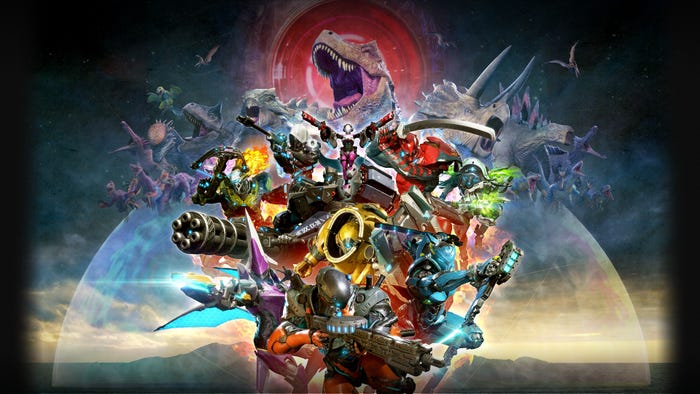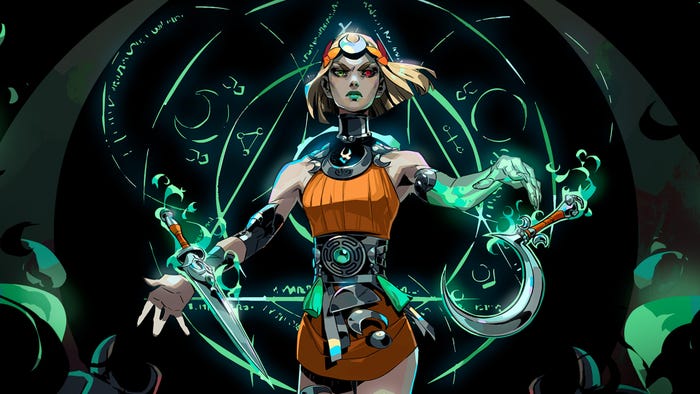Serving 'damn good sushi' is the Japanese developer's path, says Team Ninja
Ninja Gaiden III got dogged by critics and fans for failing to live up to its predecessors -- but Team Ninja head Yosuke Hayashi tells Gamasutra in a new interview that the developer has retrenched on its strengths.

With the development of Ninja Gaiden III, Team Ninja faced a lot of challenges -- modernizing the franchise, pushing it forward without creator Tomonobu Itagaki, and trying to make it fit in with the current generation of games, one in which Japanese games have often been a poor fit. The team chose to try and Westernize the series' aesthetics and gameplay, with disastrous results. The game was widely panned by critics as losing the soul Ninja Gaiden -- arguably Tecmo Koei's most important franchise in the West. The team lost the battle of expectations, despite delivering a solid game. What happened? "It seems like we made a Japanese hamburger for the West," says Team Ninja head Yosuke Hayashi, who spoke to Gamasutra at E3. When the game was released and reviewed, he was forced to face the fact, however, that "maybe as a Japanese developer, we need to make good Japanese food... and that’s what people are wanting from a Japanese developer." Unfortunately, he says, "the state the Japanese industry is in right now" means that developers are "doing everything they can just to basically stay above water." This has lead to attempts to pander to Western tastes at the expense of what they do best, but Hayashi is optimistic that everyone giving their all to try and solve problems will result in "answers for how to move forward, and how to make things work in the future." For his part, Hayashi has decided to retrench on his team's strengths, because that's what players want, and he's well aware what his team is actually capable of. "We really felt that we need to emphasize our strengths as a developer and push those further, moving forward," he says. "The biggest thing for us, when you come here to LA, there’s always going to be Japanese food. There’s always going to be Japanese restaurants. And that’s us." At E3, Japanese games were even less prevalent in the press conferences than they had been in recent years -- and Hayashi took notice. "Maybe if the industry is going for that Hollywood blockbuster direction, we can offer something that's different," says Hayashi. "It’s not like everybody wants to see Transformers every day." "I like Assassin’s Creed, but that’s not the only game I want to play. We can’t compete directly with that, and we don’t want to. That’s not where we are," he admits. It's not simply a matter of skill, either; it's a matter of resources. Team Ninja does not have the staff Ubisoft does. Even if the team can't punch at that weight, he says, "we can still offer solid entertainment, and make sure that it reaches the people that are looking for that solid entertainment." "If we can find the people that enjoy that kind of entertainment, then we can win. We can be successful." The place where Japanese games unquestionably excel is in precise, high-speed action. Many of the arguments critics levied against Ninja Gaiden III, in fact, revolved around the fact that the game is more forgiving in its controls than prior installments. "The actions that you’re doing should link really closely with what you’re seeing on the screen, and we think that Japanese games have that stronger connection," says Hayashi. "Looking at Western games and Japanese games, I think you can tell that there’s a difference." The key to a Japanese game is that you get an "instant response on screen," he says. "That feels good and that draws players into the game itself." Moving forward, he says, "gameplay will be first... We’re not going to offer burgers anymore, but we’re going to offer you damn good sushi." In the future, Team Ninja won't try and "hide who we are," says Hayashi. "I really liked The Last of Us. It looks good but I don’t think that’s a direction for us to go in," he says. "We're a Japanese developer. That's us. That's who we are."
About the Author(s)
You May Also Like













